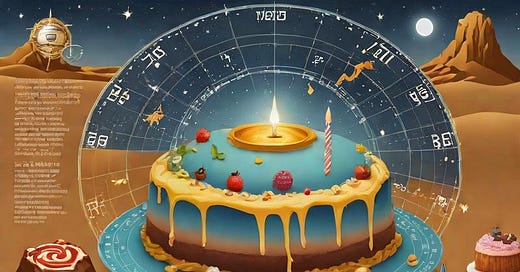Abraham, Abraham, and me
In honor of both Abrahams, I’m wishing for more unity, love, and healing for and between all peoples. Plus I'm sharing an old poem I've given new life to.
In January, inspired by my One Word for 2024, which is Author, I spent an hour each day writing … okay I’m ready to use the word … my book of poetry about Sarah, Abraham, and Hagar.
Now that January is in the rearview mirror, I’m taking the next step: This month I’m compiling all the poems I’ve written for The Life of H: Sarah, Reimagined, into one docum…
Keep reading with a 7-day free trial
Subscribe to The Life of H to keep reading this post and get 7 days of free access to the full post archives.



